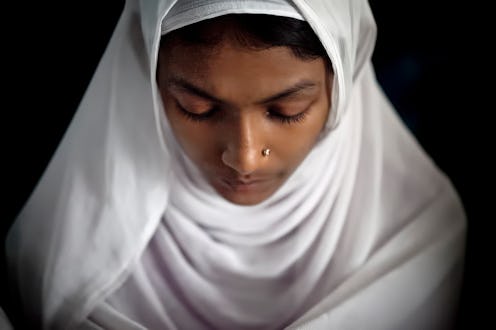Fashion
Ramadan May Be The Newest Sale Holiday
Holidays are no longer simply for religious observation, if Christmas blowouts and Easter sales are any indication. Now, it seems that Ramadan sales are becoming a thing, making it the next holiday to surrender to consumerism. According to Racked, the Islamic holy month is beginning to inspire retailers to target those who observe the holiday.
According to Muslim ideology, Ramadan celebrates the historic date on which Muhammad discovered the Qur'an. Worshippers call the exact night of the Qur'an's revelation Lailat ul Qadr, a date when, according to BBC, "the gates of Heaven are open" and "the gates of Hell are closed." Prayer and fasting are widely practiced during the month, and now, shopping may be another hallmark of the holiday. "In the hands of corporations, would Ramadan be turned into a frenzied 30 days of sahoor doorbusters and extended-hours sales that encourage mass consumerism in the name of finding the perfect Eid gift?" Racked reporter Fareeha Molvi questions. Signs point to yes.
After years of observing the holiday with her Muslim-American family, Molvi noticed that 2015's Ramadan commemoration not only garnered the attention of Muslim adherents; the holiday had also cast its influence on the fashion industry. "When I was a Muslim-American kid growing up in Southern California in the ‘90s, the celebration of Ramadan was all but invisible outside the walls of my home," Molvi states.
However, the 2015 is quite another matter. DKNY made headlines in 2014 by fashioning a Ramadan collection for Middle Eastern consumers, and this year mass retailer Mango currently offers a Ramadan collection, summoning the notion that Ramadan may be the latest capitalist holiday. Molvi cites the trend as a major potential step for Muslims, asking, "The fact that big corporations are willing to invest in marketing and branding specific to Muslims has to constitute some level of acceptance of us, right?"
Molvi is quick to note that whilst fashion's eager embrace of Ramadan shows promise, the purchase-driven spirit of the collections is at odds with Ramadan's emphasis on altruism and selflessness. "At its core, Ramadan is about doing more with less. Literally, you're asked to do more good deeds while physically consuming less," the reporter clarifies.
Based upon Molvi's own experiences, it seems that Ramadan's commercialization raises questions in addition to providing significant boons for Muslim worshippers. Whether or not Ramadan's commercialization is beneficial or not remains to be seen, but the fact that another significant holiday is being commodified is a phenomenon of which to be mindful.
